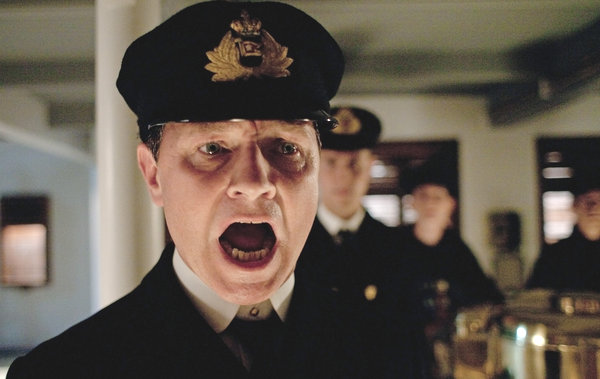Yesterday marked the 100th anniversary of the Titanic disaster, which accounts for the recent upsurge in news and events surrounding the ship's tragic fate, as well as the return of the incredibly popular 1997 movie, (now in 3D!) titled, aptly, Titanic. It's not just a movie!!!
It's not just a movie!!!
For a combination of reasons - the scale and luxury of the incredible ship itself, the many pronouncements of its 'unsinkability' prior to it well, sinking, the presence onboard of many of the time's super rich and elite, and finally the sheer scope and sadness of the tragedy that saw over 1,500 perish in the freezing sea; the Titanic story seems even more popular and in the societal conscious than ever before. The 1997 film played a significant role of course in cementing the Titanic story in our collective minds, it was for many years following its release the highest grossing film ever, and even now is still second in Worldwide box office receipts. With close to $2B in worldwide ticket sales and about 178,294 additional showings in the last 15 years on cable TV, chances are really, really high that everyone has seen this movie, or at least is familiar with it. It remains a legendary achievement in pop culture history.
The popularity and ubiquity of the 1997 movie has also had some unexpected effects on the understanding and interpretation of the actual events of the Titanic in the minds of some observers. Namely, it turns out that lots of people, (mostly young people), did not realize that Titanic was not just a movie, but an actual historical event. There have been loads of articles posted about this, this one from the Gothamist is a good example, and they (mostly), take the same kind of condescending slant of 'Can you believe these dumb kids?' and 'Our culture is doomed once these numbskulls are in charge.'. After all, the reasoning goes, how can you not know the Titanic story, it has been told, re-told, revised, re-revised, told some more, dramatized, and finally re-dramatized pretty much endlessly for the last 100 years.
So here's where I disagree with that kind of reasoning, particularly when it comes to 'adults' passing judgment on say the average 15 or 16 year-old that might not have realized that there was an actual Titanic, and not just the boat that Leo DiCaprio sailed on in 1997. The history of the Titanic is at best marginally interesting, and 100 years later the continued fascination with the tale is to me, kind of baffling. Yes, it was an amazing story; yes, there is some historical significance; yes, subsequent efforts to analyze, understand, and interpret the events have yielded some important insights; but the level to which this singular event has been elevated is in my view way out of rational proportion.
If the 1997 movie was the first and only introduction and experience to the story for say anyone under 25 years of age, I am perfectly fine with that. And I'd submit that there are likely about a thousand other subjects that we as a society should be concerned that our next generation of workers and leaders need to know more about, the details of an ocean liner sinking in 1912 fall really low on that list.
Recently Naomi Bloom ran an excellent piece on the difficulty of keeping up with everything, and the importance of applying perspective, choice, and reasoning in the battle against an endless and unyielding stream of information. The main point - you have to pick your spots, you can't know everything, and you have to decide what is truly relevant and meaningful.
If keeping up with every nuance in the 100-year old Titanic story seems valuable to you, then that is fantastic, but don't crack down on some 17 year-old that doesn't see it the same way, or even never gave the entire episode a second thought once the movie ended. There are likely about a million things I'd rather have that kid be familiar with, (cruise control is not the same as auto-pilot would be one), than knowing if John Jacob Astor made it to the lifeboat in 1912.